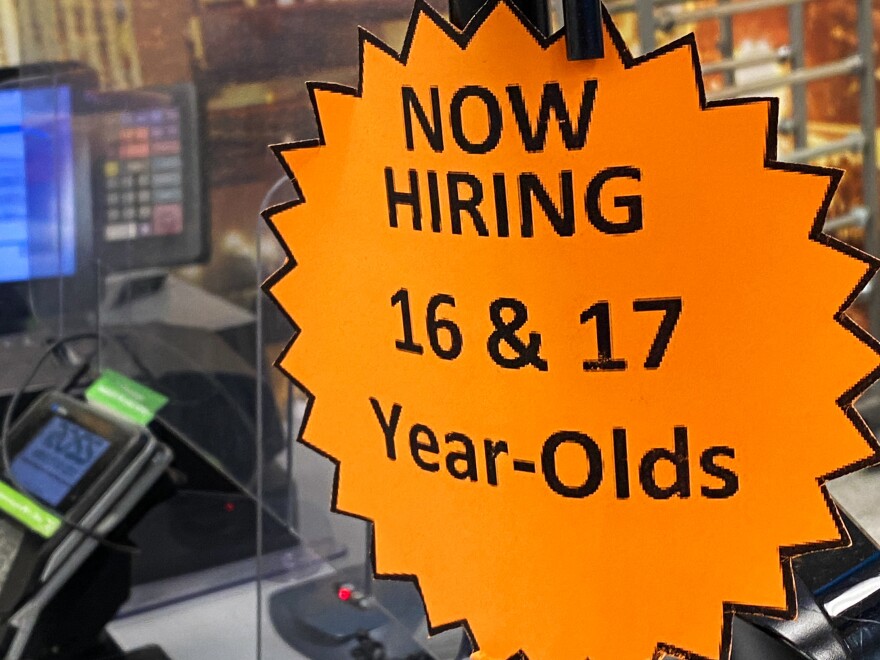Lately, it feels like every basic cost has gone up. With paychecks covering less food, gas, and housing than they used to, many Americans are getting frustrated with inflation and wondering what is going on.
Josh Bivens is the director of research for the left-leaning Economic Policy Institute, and joined All Things Considered to walk through some of the issues.
Gas prices
In a recent speech that addressed record gas prices, President Joe Biden said that Exxon had, "Made more money than God this year."
Bivens said profit margins for most of the major oil companies showed this wasn't such a far-fetched idea.
"Especially for the first year of the inflationary shock, basically from very early 2021 to the end of 2021, if you track profit margins, those profit margins got much fatter," he said. "And they actually reached historically high levels by the end of 2021. So the rise of profits definitely is a big part of why prices jumped in 2021."
He added that it wasn't just a case of production costs and scarcity expenses being passed down to consumers.
"They're not just passing them on, they're also increasing their profit margins," he said. "So they're taking whatever increase in costs they're experiencing, they're adding to it, and it turns out they're adding enough."
Job market
Meanwhile, amid a more competitive job market and the great resignation, employers are struggling to recruit like they used to.
Specifically, fast food outlets have had to give more lucrative offers in order to fill roles. Some claim this has contributed to inflation as well.

But Bivens pushes back. He notes wage growth in the U.S. has lagged inflation.
"So it means, on the one hand, workers' real wages, their inflation-adjusted wages, they're actually going down," he said. "And also every time wage growth comes in beneath overall inflation, it's actually serving as an anchor on inflation. It's actually trying to drag it back down to a more normal level."
Pandemic relief
The pandemic relief payments put a lot more money into the checking accounts of many Americans and helped drive consumer spending. Bivens said when it came to inflation, however, that wasn't the whole story.
"Inflation is global. There's been an acceleration of core inflation across every advanced economy, even the ones that did very, very little fiscal relief," he said. "And so I think the evidence linking specific Biden-era policies to the surge in inflation is just really, really weak."
The war in Ukraine
It's no secret that the war in Ukraine disrupted the supply chain for many other countries that relied on goods from that region of the world, specifically wheat and fertilizer.
Bivens said this impact had been felt by just about everyone.
"I mean, when oil and food prices just go through the roof, there is a scramble among other people in the economy to try to protect themselves," he said, adding that workers try to get higher wages in response. "They're not fully successful, but wages do go up a bit. And so I think it's mostly the shocks, the pandemic, and war shocks, and some ripple effects."
He added that the solution was pretty straightforward.
"I don't think it's just a consistent set of policy mistakes that we need to unwind," he said. "I think what we need to have happen is the shocks need to stop."
Copyright 2022 NPR. To see more, visit https://www.npr.org.




